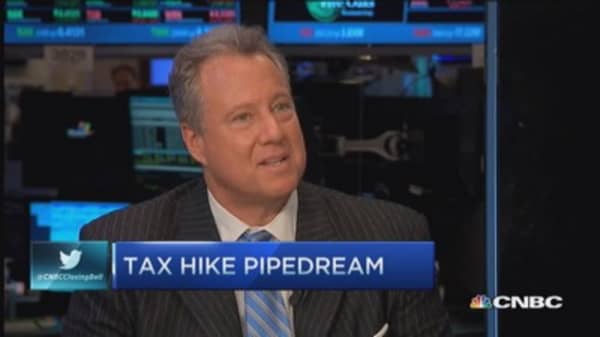The falling price of oil and other raw materials will continue to boost the bottom lines of American companies this year, according to a recent survey of business economists.
And there are signs that the stronger job market may soon begin fattening workers' paycheck, according to the National Association for Business Economics.
"There are strong expectations for the first quarter, especially for jobs and wages, backed up by strong capital spending, said NABE President John Silvia, chief economist for Wells Fargo Securities.
If those expectations pan out, it would be a welcome change for tens of millions of American workers who have seen little or no evidence of the economic recovery in their paychecks. Economists have been predicting for some time that as the unemployment rate falls, and job openings become more difficult to fill, companies will have pay more to attract or retain workers.
But so far, a strengthening job market hasn't moved the needle on the government wage measures. Last month, employers expanded their payrolls with 252,000 net new positions, pushing the jobless rate down to 5.6 percent. But wages slipped by 0.2 percent in December.
Sales growth picked up a bit during the fourth quarter of 2014; some 54 percent of respondents reported rising sales compared with 49 percent in the October NABE survey. Falling sales were reported by 15 percent of respondents, and a majority said they expect sales will rise during the first quarter of this year, according to the latest survey of the group of economist that advise large U.S. companies. The responses were made between Dec. 15 and Jan. 8.
While sales picked up, prices leveled off. Roughly three-fourths of respondents said their company did not raise prices in the previous three months, up from two-thirds in the October survey. Only 16 percent reported raising prices. And almost two-thirds said they expect no change in the prices in the first quarter of this year.
Most expect the recent plunge in oil prices to have an effect on their business—more than half said it will help. For many, costs of other materials are also flat or falling. Only 13 percent reported rising costs, less than half of the share in the April, July and October surveys. One-quarter reported falling costs. Fewer expect rising costs over the next three months.
Read MoreOil patch layoffs just a drop in the job bucket
With prices falling across a range of commodities and raw materials, profit margins grew at slightly more firms during the fourth quarter than in the third quarter. About half report profit margins were flat in the fourth quarter, about a third said margins were rising and 12 percent said margins fell.
With costs falling and profits rising, about a third of companies are passing some of the gains along to workers in the form of higher wages. Over half said they expect to give out raises in the first three months of 2015.





